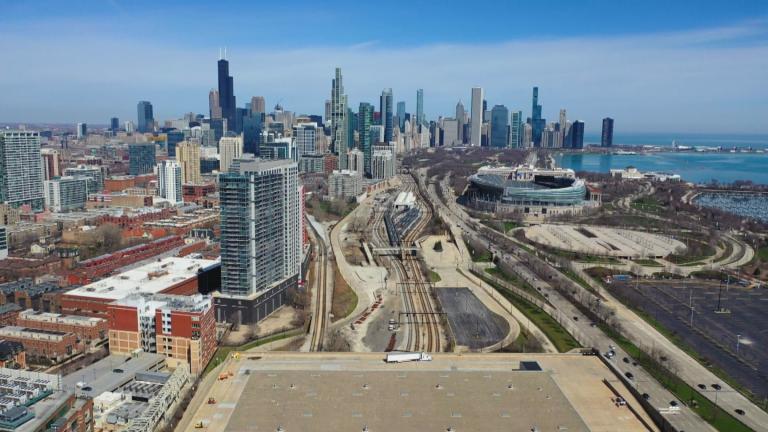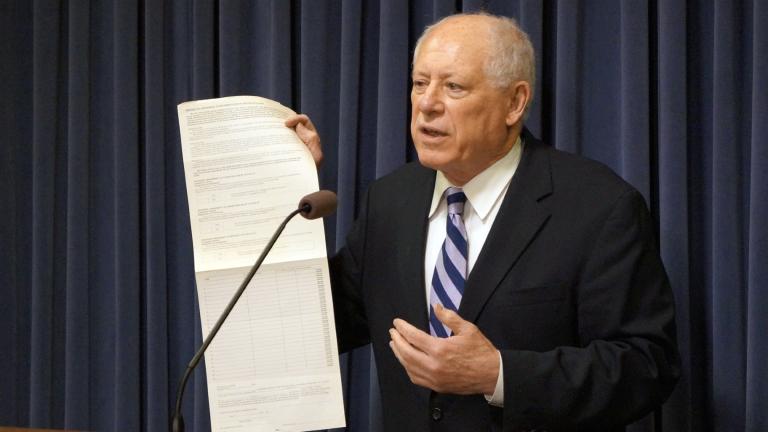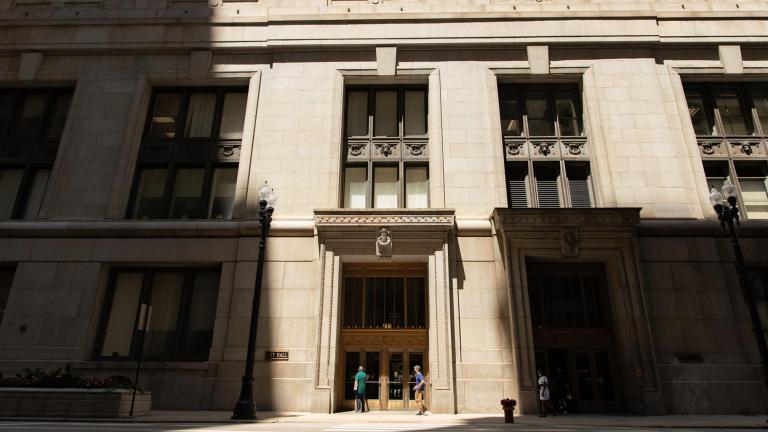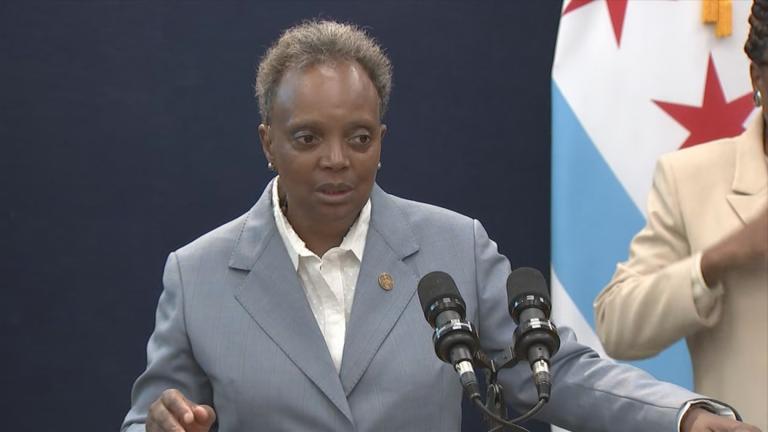Pat Quinn, the 41st governor of Illinois, will not run to become the 57th mayor of Chicago.
Instead, Quinn, 73, told reporters at an afternoon news conference that he would focus on efforts to beef up the ability of voters to reform Illinois government through the initiative and referendum process.
“I think that’s really my calling,” said Quinn, adding that Chicago should have a taxpayer advocate that could focus on efforts to reduce property taxes.
Quinn declined to join the crowded race to deny Mayor Lori Lightfoot a second term at nearly the 11th hour, with more than a dozen already-announced candidates preparing to file their nominating petitions with the Chicago Board of Elections on Monday. To qualify for the ballot, candidates need the signatures of at least 12,500 registered Chicago voters.
Read More: Race for Chicago Mayor: Who’s In and Who’s Out for 2023 Election
Quinn endorsed Lightfoot in the 2019 race. He declined to say whom he would endorse in this year’s race.
Quinn said he was “very disappointed” that Lightfoot backed a two-term limit for Chicago mayors in 2019, but dropped her support after taking office.
Quinn rose to prominence as a crusader while pushing an amendment to the Illinois Constitution that reduced the size of the Illinois House of Representatives from 177 to 118 in 1980. The measure also required House members to run in single-member districts. It is the first and so-far only time in state history that a voter-initiated petition process put a binding referendum to voters statewide and enacted a constitutional amendment or law.
Quinn has run for every statewide office except comptroller, and served as governor, lieutenant governor and treasurer. Quinn also ran unsuccessfully for the U.S. Senate.
After the General Assembly impeached Gov. Rod Blagojevich and removed him from office in 2009, Quinn became governor, and won a full term in 2010. However, Quinn narrowly lost his bid for re-election to Republican Gov. Bruce Rauner in 2014. In 2018, Quinn mounted a comeback and ran for attorney general, losing to eventual winner Kwame Raoul in the Democratic primary. Quinn won 23% of the vote in Chicago, election results show.
Quinn clashed frequently with former Mayor Rahm Emanuel, and launched an effort to collect enough signatures to put a question to Chicago voters on the 2018 general election ballot that would limit Chicago mayors to serving no more than two terms.
That measure did not make the ballot after elections officials ruled Quinn violated state law by collecting signatures for more than one initiative on the same petition. Quinn also wanted Chicago voters to create an elected consumer advocate position.
Since then, Quinn has aimed his fire at Commonwealth Edison, which has been engulfed in scandal since the utility giant admitted to a federal judge that company officials arranged jobs, contracts and payoffs to associates of former House Speaker Michael Madigan to win the favor of the state’s most powerful lawmaker.
Quinn has also blasted Lightfoot for failing to release the full investigation completed by Chicago’s inspector general into the botched implosion of a smokestack in Little Village and launched an effort to stop city officials from selling the naming rights to Soldier Field through an advisory referendum.
Quinn’s decision not to run means that Lightfoot will likely face nine major challengers: Cook County Commissioner Brandon Johnson, U.S. Rep. Jesús “Chuy” García (D-Chicago), Willie Wilson, Ald. Raymond Lopez (15th Ward), state Rep. Kam Buckner (D-Chicago), Paul Vallas, Ald. Roderick Sawyer (6th Ward), Ja’mal Green and Ald. Sophia King (4th Ward).
The election is Feb. 28. If no candidate wins a majority of the vote, the top two finishers will head to a runoff on April 4.
Contact Heather Cherone: @HeatherCherone | (773) 569-1863 | [email protected]








